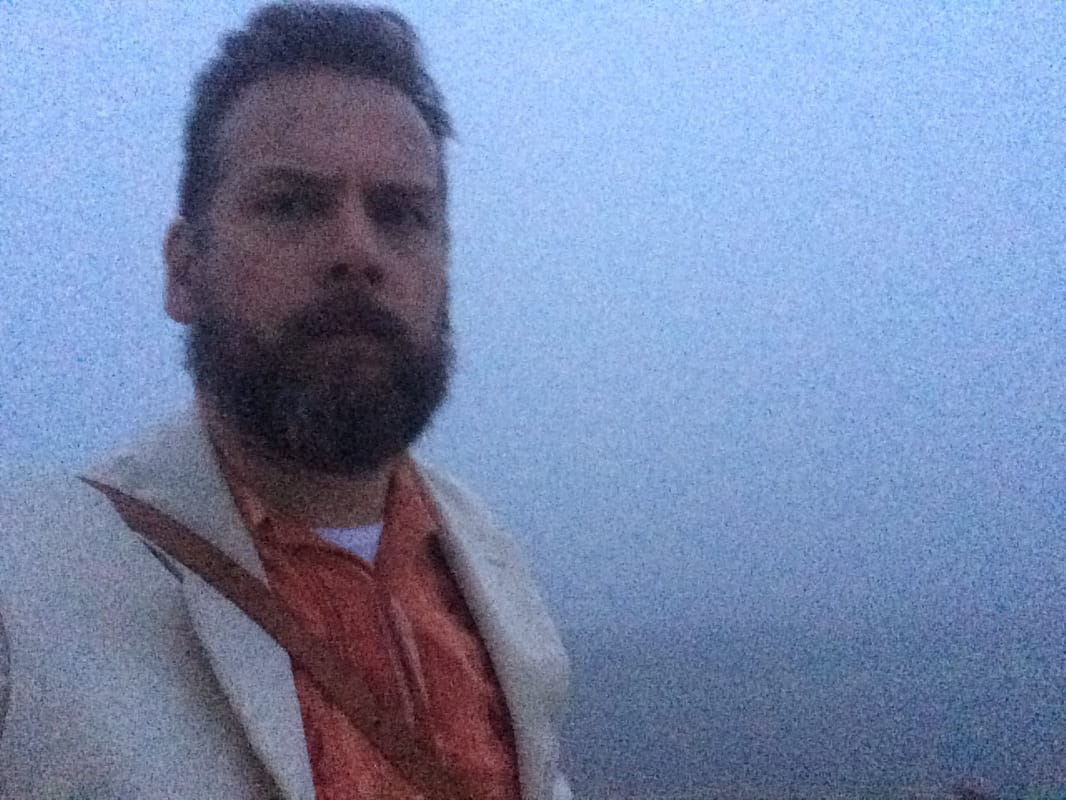|
Steven Spielberg's weird relationship with seriousness continues with the 70s style thriller Munich - a film that never really finds its footing in the murky world of counter-terrorism. Coming out the same year as War of the Worlds, it seemed like Munich was set up to be the Schindler's List to War of the Worlds' Jurassic Park. And yet there's a lot of Jurassic Park in Munich in the same way that there's a hell of a lot of Schindler's List in War of the Worlds. Based on the Black September terrorist attack on the Israeli Olympic team at the 1977 Olympics in the eponymous city. One of the problems the film has is how to handle this attack that saw eleven Israeli members of the team murdered as negotiations and rescue operations were botched. The first fifteen minutes portrays the attack via the view of the media, with banks of televisions, teams of reporters and misinformation reported live and then heart-breakingly corrected live on television. The real narrative of the film starts with the aftermath as a low level agent Avner (Eric Bana) is tasked with leading an international team to wreak revenge on the Palestinian terrorists responsible for the atrocity. Steve (Daniel Craig) is the South African thug; Carl (Ciaran Hinds) is the cleaner, there's a Danish forger Hans (Hanns Zischler) and Mathieu Kassovitz plays the toy-maker turned bomb-maker. The film is at pains to point out how improvised and amateurish the killers are; how hesitant and mistake prone until they end up losing either their lives or their humanity. Carl in particular spends much of the film - to the annoyance of the rest of the team - worrying about the ethics of what they are doing. This reminded me of David Mamet's response to Schindler's List, as he imagined audience members weeping at the horror they saw and then comforting themselves that they would good human beings because of their weeping. Here, it seems to be the same. We want to have a murderous thriller of exciting assassinations, and we want to be the good guys and being the good guys essentially means worrying about it a bit and having a pregnant wife. There are many films about men losing their humanity as they pursue higher goals - only to finally question the validity of those higher goals and the worth of their sacrifice. Lawrence of Arabia is a prime example. But here the examination takes the form of minor kvetching and unfortunately Eric Bana is an actor who cannot carry the weight of the film. After an eye-catching debut in Chopper, Bana has had a respectable career in Hollywood without ever making a real impact. Here he is bland and likable but as the film goes on his torment is acted out without ever feeling real. When he tears his flat apart in a fit of paranoia, it felt like a filmic reference to The Conversation, but again did not convince. As with War of the Worlds, the set pieces are brilliantly conceived and thrillingly filmed. The bombing and the murder have the visceral vicarious thrill of gangster movies, but the team as a collection of characters is never much more than broad-stroke stereotypes: the nebbish guy, the Adonis, the guy with the pipe. There's no tension. The first meal where they all meet, some lines are drawn to show different attitudes but they never move or develop. The talent of the assembled cast manages to overcome to some extent the shortcomings of the script but there's only so much the actors can do. But at least they're men. The women get short shrift as either hard mothers, stay at home wives or one female assassin who is granted the most humiliating murder of everyone. The aftermath of her death is typical of the film's attempt to have it both ways. Avner tries to cover her naked corpse but Hans - who we have previously thought of as avuncular - not only gives the coup de grace but also insists on her corpse being left nude. This is a hard hitting point to show how violence has coarsened these men. Only to be taken back in the next scene when Hans tells the group he doesn't regret killing her but he does regret not covering her up. This gives his soul the guilt wash it needs before his immediate and subsequent death. This is not to say that Munich is a bad film. It looks great and as I've already noted the set pieces are superb. The period detail is lovingly reproduced and is also given in the lighting, those yellows and greens say the seventies just as much as the clunky telephones and boxy cars. But the details are foregrounded instead of background. And more importantly the characters don't have a grip on who they actually are and so the film when it does want to open up a debate comes off as glib. The actual inciting atrocity is sprinkled through the film like a dash of cinematic cocaine to keep the killers psyched and ready for their next victim. Flashbacks are delivered via reflections in windows and dreams. In the last possibly most ill-thought out decision, Avner flashbacks the final killing on the tarmac of the Munich airport while energetically and sweatily having sex with his wife. The fact I've never really believed in Avner as a character means this just comes off as silly. Not tortured or a brave choice. Daft. Bad soap opera daft. Still Munich can join Amistad as a good try. Not fully accomplished but a good shot. Not an awful film. That would come next.
0 Comments
Leave a Reply. |
AuthorJohn Bleasdale is a writer. His work has appeared in The Guardian, The Independent, Il Manifesto, as well as CineVue.Com and theStudioExec.com. He has also written a number of plays, screenplays and novels. Archives
March 2019
|
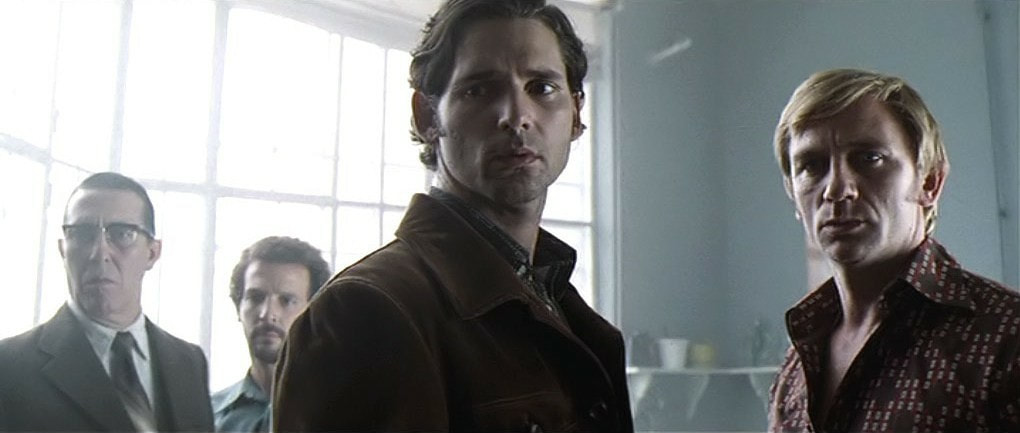
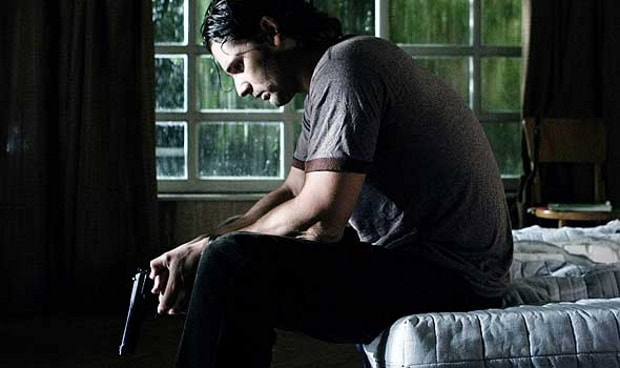
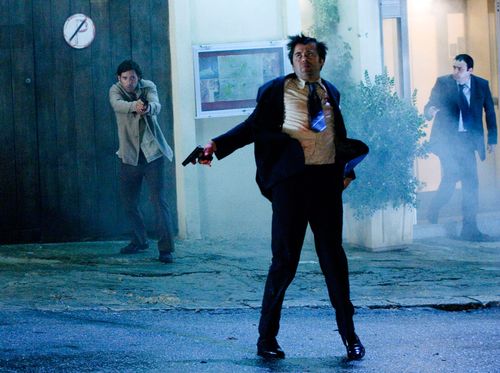
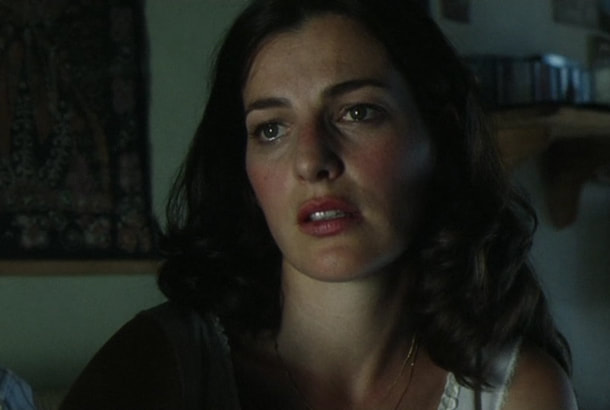
 RSS Feed
RSS Feed
